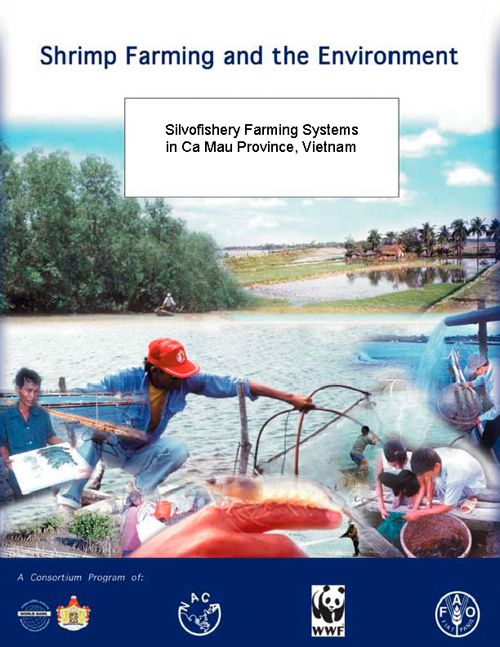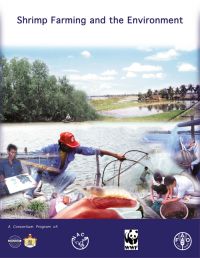Silvofishery farming systems in Ca Mau Province, Vietnam
31 May 2005 | Barry Clough, Danielle Johnston, Tran Thanh Xuan, Michael J. Phillips, Sunil S. Pednekar, Nguyen Huu Thien, Truong Hoang Dan and Pham Le Thong | 1401 Downloads | .pdf | 782.87 KB | Better management practices, Aquatic plants, Shrimp, Environment and Sustainability, Vietnam
The present case study is divided into two parts: (1) a description of the farming systems and management practices for mixed shrimp aquaculture-mangrove farming systems in the Mekong delta of Vietnam; and (2) the findings from a detailed socio-economic study of these farming systems. The case study describes and builds on experiences of the ACIAR/RIA-2/NACA Project (PN 9412) “Mixed shrimp farming-mangrove forestry models in the Mekong delta”. The project was carried out in two State Fishery-Forestry Enterprises (SFFEs), Tam Giang III (TGIII) and SFFE 184, both located in the Ngoc Hien District, Ca Mau Province, Vietnam.
The first phase of the project (1996-98) achieved its two technical objectives of investigating the main factors limiting shrimp and wood production, and identifying improved culture options and management practices for these mixed farming systems. The project was extended into a second phase (until September 2000), to assist in achieving the other objective of assisting national and provincial authorities to transfer project results and recommendations to coastal farming communities in the lower Mekong Delta. In this regard, an in-depth socio-economic study of sample farmer communities in the two Enterprises was carried out to assess the benefits and constraints relating to the implementation of the management recommendations by farmers, and to recommend appropriate institutional framework that would enable effective adoption of these recommendations.
The findings provide important insight into the social and economic status of farmers involved in mixed aquaculture-mangrove farming, and the constraints associated with the adoption of management recommendations, with special consideration of the problems faced by poor farmers.
In addition, the information on socio-economic conditions of farmers practising silvo-aquaculture, gathered through this study, may be of use to a number of other projects currently on-going or planned in the Mekong Delta, including the World Bank-Government of Vietnam project for the Rehabilitation and Development of Coastal Wetlands. The findings are also of more general concern to the World Bank/NACA/WWF/FAO Consortium Program on Shrimp Farming and the Environment, providing management practices relevant to mixed farming systems, and wider understanding of the constraints faced by poor farmers in adopting better management practices.
Copyright, all rights reserved.

